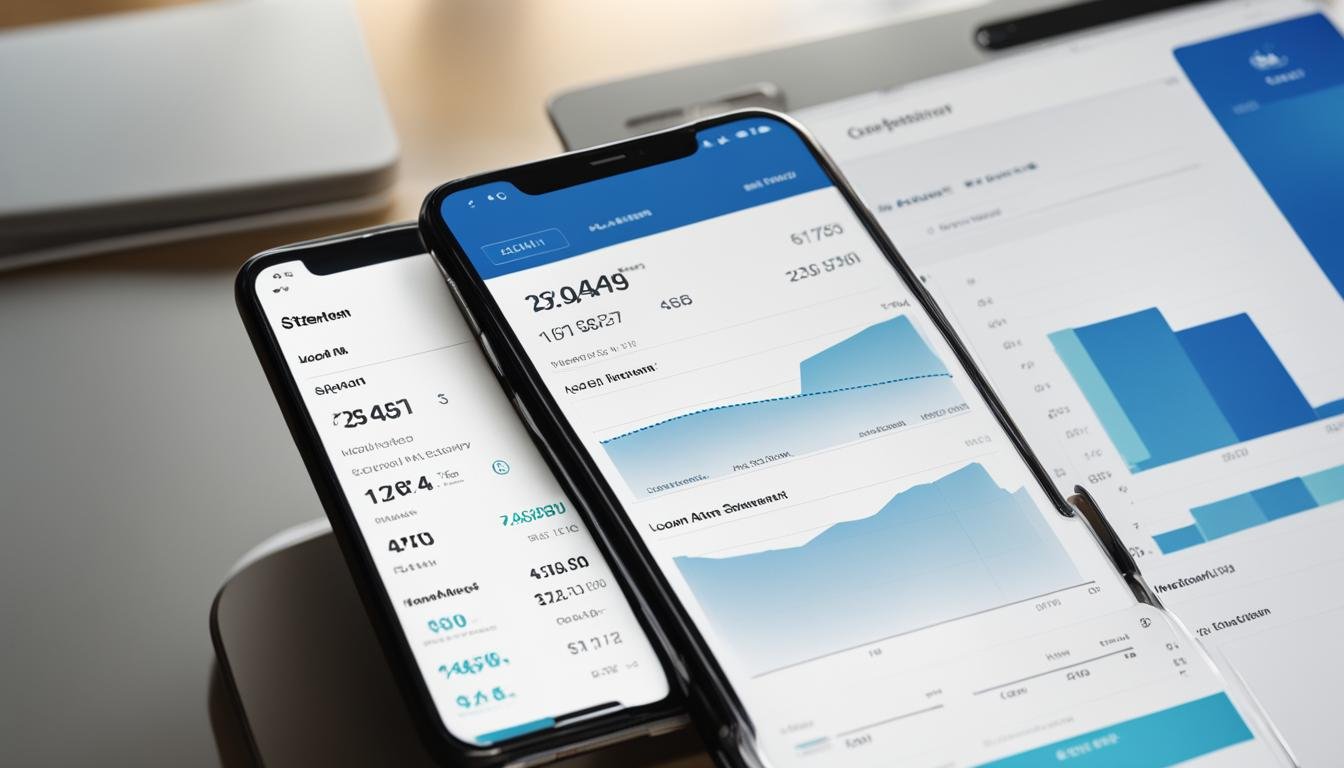What is a Student Loan? How to Apply? & How does It work?
December 19, 2023 | by SASSA Admin

Welcome to our guide on student loans in South Africa. If you’re looking to pursue higher education but need financial assistance, a student loan can be a valuable tool. In this article, we’ll explore what student loans are, how to apply for them, and how they work.
Key Takeaways:
- A student loan is a financial tool that helps South African students afford the costs of higher education.
- Repayment varies for full-time and part-time students, with full-time students requiring a surety until they complete their studies.
- To apply for a student loan, you must be accepted or currently studying at an accredited institution in South Africa.
- Student loans provide access to education opportunities, helping students pursue their dreams and have a competitive edge in the job market.
- Applying for a student loan involves gathering necessary documents and visiting a bank branch.
Why Get a Student Loan?
A student loan offers numerous benefits for students in South Africa, providing them with access to higher education opportunities that would otherwise be unaffordable. By taking out a student loan, you can pursue your academic dreams and gain a competitive edge in the job market.
One of the advantages of a student loan is that it covers not just tuition and registration fees but also associated costs such as accommodation, textbooks, and necessary equipment like laptops or computers. This means that you can focus on your studies without the financial burden of these expenses.
Furthermore, a student loan allows you to invest in your future by gaining the knowledge and skills needed for specialized careers. With a higher education qualification, you can unlock more job opportunities and increase your earning potential over the long term.
Table: Advantages of a Student Loan
| Advantages | Explanation |
|---|---|
| Access to Education | Enables you to afford the costs of higher education that would otherwise be unattainable. |
| Financial Support | Covers various expenses such as tuition fees, registration fees, accommodation, and necessary equipment. |
| Competitive Edge | Prepares you for specialized careers, increasing your job prospects and earning potential. |
Overall, a student loan can be a valuable tool to help you achieve your educational goals and set yourself up for future success in South Africa.
How to Apply for a Student Loan in South Africa?
Applying for a student loan in South Africa is a straightforward process that requires a few essential steps. To begin, you must be a South African citizen and either accepted or currently studying at an accredited institution. This ensures that the loan is used for educational purposes. Whether you are a full-time or part-time student, there are specific requirements and documentation needed for each type of enrollment.
If you are a full-time student, you will need a surety to sign on your behalf until you complete your studies. The surety must have a minimum monthly income of R3,000. For part-time students, the surety’s minimum monthly income requirement is R5,000. It is important to note that these income requirements are in place to ensure that the loan can be repaid in a timely manner and that the student’s education is prioritized.
Once you have gathered all the necessary personal and course-related documents, you can visit your nearest branch of a South African bank to complete the application process. Some of the banks that offer student loans in South Africa include Standard Bank, Nedbank, Absa, and First National Bank. It is advisable to research and compare the loan offerings from different banks to find the most suitable option for your needs.
Table: Required Documentation for Student Loan Application
| Document | Description |
|---|---|
| Identity Card | Proof of South African citizenship and identification |
| Proof of Income (Guardian) | Documentation showing the minimum income requirement for the surety |
| Proof of Address | Documentation confirming the current residential address |
| Enrollment Documentation | Proof of acceptance or enrollment at an accredited institution |
By following these application steps and ensuring that you meet the eligibility criteria, applying for a student loan in South Africa can be a smooth and efficient process. Remember to carefully review the terms and conditions of the loan before committing, and seek guidance from professionals or bank representatives if you have any questions or concerns.

Eligibility Criteria and Required Documentation
If you’re considering applying for a student loan in South Africa, it’s important to understand the eligibility criteria and the documentation required for the application process. Meeting these requirements ensures that your application is considered and processed smoothly. Here’s what you need to know:
Eligibility Criteria
- Applicants must be 18 years or older.
- Only South African citizens are eligible.
- Applicants must be registered as students in a South African institution.
It’s also important to note that the person responsible for repaying the loan, such as a guardian or parent, must meet a minimum income requirement. This is to ensure that the loan can be repaid on time.
Required Documentation
When applying for a student loan, you’ll need to gather and submit certain documents as part of the application process. These documents typically include:
- Identity card or valid passport.
- Proof of income for the person responsible for repayment (such as bank statements or employment contracts).
- Proof of address (such as utility bills or rental agreements).
- Documentation from the institution of enrollment confirming your acceptance or current enrollment.
It’s important to ensure that you have all the necessary documents ready before applying for a student loan. This will help expedite the process and increase your chances of approval. Be sure to check the specific requirements of the bank or financial institution you’re applying to, as they may have additional documentation requirements.

| Eligibility Criteria | Required Documentation |
|---|---|
|
|
Private vs. Federal Student Loans
When considering student loans in South Africa, there are two main options to choose from: private loans and government loans. Understanding the differences between these two types of loans can help you make an informed decision about financing your education.
Private student loans are offered by banks and other financial institutions. These loans usually come with higher interest rates and stricter criteria for eligibility. In most cases, private loans require collateral and a cosigner, such as a parent or guardian, who will be responsible for repaying the loan if the student is unable to do so.
On the other hand, government loans, also known as federal loans, are typically more affordable and come with lower interest rates. These loans are offered by the government and have more flexible repayment options. Unlike private loans, government loans do not require a cosigner, making them more accessible for students who may not have a guarantor.
| Private Student Loans | Government Student Loans |
|---|---|
| Higher interest rates | Lower interest rates |
| Strict eligibility criteria | More flexible eligibility criteria |
| Requires collateral and cosigner | No collateral or cosigner required |
| Available through banks | Offered by the government |
Table: Comparison between Private and Government Student Loans in South Africa
When deciding between private and government loans, it’s important to consider your individual financial situation and goals. Private loans may be a viable option if you have a cosigner and are comfortable with potentially higher interest rates. Government loans, on the other hand, offer more affordable repayment options and do not require a cosigner, making them a popular choice among students.
It’s recommended to thoroughly research and compare the terms, conditions, and repayment options of both private and government loans before making a decision. You should also consider consulting a financial advisor or a representative from your chosen financial institution to ensure you fully understand the implications of your loan choice.
Challenges in the Student Loan Application Process
Applying for a student loan in South Africa can present various challenges and difficulties. Understanding and overcoming these obstacles is essential to ensure a successful application process. Here are some common challenges that applicants may encounter:
Lack of Financial Knowledge
Many students and their families may have limited knowledge about interest rates, repayment calculations, and the overall financial implications of taking out a student loan. This lack of financial literacy can make it challenging to make informed decisions and choose the right loan option that suits their needs and financial situation.
Meeting Eligibility Criteria
In order to qualify for a student loan, applicants must meet specific eligibility criteria set by the lending institutions. These criteria may include being a South African citizen, being accepted or currently studying at an accredited institution, and having a reliable cosigner or guarantor if required. Meeting these criteria can be a hurdle for some applicants, especially if they do not have the necessary documentation or do not meet the income requirements.
Providing Required Documentation
The student loan application process typically requires applicants to provide various documents, such as proof of identity, proof of income of the cosigner or guardian, and proof of address. Gathering all the necessary documentation can be time-consuming and may pose a challenge for students and their families, particularly if they are not aware of the specific documents needed or have difficulty accessing them.
Overcoming these challenges requires proactive measures. Seeking advice from financial professionals, exploring different loan options, and familiarizing oneself with the application process can help applicants navigate the complexities of obtaining a student loan in South Africa.
Additional Funding Options and Resources
While student loans are a popular choice for funding higher education in South Africa, there are alternative options available to help students finance their studies. One such option is the National Student Financial Aid Scheme (NSFAS). The NSFAS provides financial assistance to eligible students in the form of bursaries and grants.
The NSFAS aims to ensure that no deserving student is denied access to education due to financial constraints. By offering financial support, the program enables students to pursue their academic goals without the burden of excessive debt. To determine eligibility for NSFAS funding, students need to meet certain criteria and submit the necessary documentation.
Aside from the NSFAS, students can also explore other sources of funding, such as scholarships and bursaries. The Bursaries Portal is a valuable resource for finding information about the latest opportunities in South Africa. It provides a comprehensive list of available scholarships and bursaries, making it easier for students to find funding options that align with their educational goals.
When considering alternative funding options, it is important to research and understand the specific criteria and requirements of each program. This will help you make informed decisions and increase your chances of securing financial assistance. Remember to carefully review the application deadlines and ensure that you provide all the required documents in a timely manner.
FAQ
What is a student loan and how does it work?
A student loan is a financial tool that helps students afford the costs of higher education. It provides access to funds that can be used to cover tuition fees, registration fees, accommodation, textbooks, and other associated costs. The loan is repaid over time, typically with a low monthly repayment amount, allowing students to manage their expenses while studying. Repayment terms vary depending on whether the student is studying full-time or part-time.
Why should I get a student loan?
A student loan offers several benefits. It allows you to pursue higher education opportunities that may otherwise be unaffordable. By taking out a student loan, you can access specialized programs and increase your chances of securing better job opportunities. The loan covers not only tuition and registration fees but also associated costs like accommodation and necessary equipment.
How do I apply for a student loan in South Africa?
To apply for a student loan in South Africa, you must be a South African citizen accepted or currently studying at an accredited institution. Full-time students require a surety to sign on their behalf until they complete their studies. Gather the necessary personal and course-related documents, such as identity cards, proof of income, proof of address, and documentation from the institute of enrollment. Visit your nearest bank branch that offers student loans, such as Standard Bank, Nedbank, Absa, or First National Bank, and complete the application process.
What are the eligibility criteria and required documentation for a student loan?
To qualify for a student loan in South Africa, you must be 18 years or older and registered as a student in a South African institute. The person responsible for repaying the loan, such as a guardian or parent, must meet a minimum income requirement. Required documentation includes identity cards, proof of income of the guardian, proof of address, and documentation from the institute of enrollment.
What is the difference between private and federal student loans?
Private loans are offered by banks and financial institutions and typically have higher interest rates and more stringent restrictions. They often require collateral and a consigner. Government loans, also known as federal loans, are less expensive and have lower interest rates. They offer more flexible repayment options and do not require a consigner. Government loans are generally preferred due to their affordability and flexibility.
What are the challenges in the student loan application process?
Some challenges applicants may face when applying for a student loan in South Africa include not knowing which bank to select, lacking financial knowledge regarding interest rates and repayment calculations, meeting eligibility criteria, and providing all the required documentation. It is important to seek advice from professionals and visit bank branches for guidance to ensure a smooth and successful application process.
Are there alternative funding options for students?
Yes, in addition to student loans, South African students can explore other funding options such as the National Student Financial Aid Scheme (NSFAS). The NSFAS provides financial assistance to eligible students and offers bursaries and grants. It is recommended for students to research and understand the different funding options available to them to make informed decisions about their education financing. The Bursaries Portal is a useful resource for finding information about the latest bursaries and scholarships.
RELATED POSTS
View all


